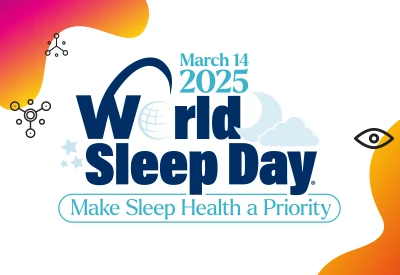Idorsia and the science of sleep
We continue to be proud supporters of World Sleep Day, and we recognize the importance of this year’s theme to “Make Sleep Health a Priority.”
Sleep is an essential pillar of health and fundamental to our overall wellbeing.1 The lack of quality, restorative sleep has a negative impact on individuals and society,2 which is why it’s crucial that we collectively work to prioritize sleep health.
With over 20 years of experience in sleep research, we are committed to advancing the science of sleep, elevating awareness of chronic insomnia, and helping to improve the lives of people living with the condition.
You can read about work Idorsia has done in our Europe and Canadian affiliates around the science of sleep for both patients and healthcare professionals in an article title "Why it’s time to prioritize sleep health" on LinkedIn.
